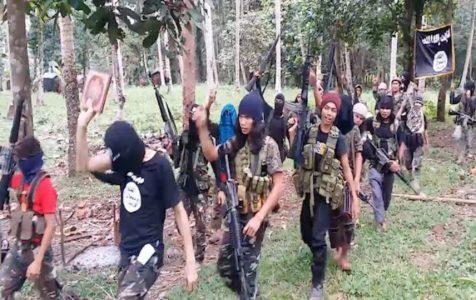
Filipino ISIS terrorists may return home but must pay the price
Filipino terrorists in Syria should be given the opportunity to return home but must “pay the price” of their involvement, officials and an analyst said.
Following the recent attacks by American-backed forces on the jihadist group Islamic State (IS), the Department of National Defense said it is expecting the return of some IS fighters to their respective countries.
“If they are Filipino citizens, my view is they pretty much be allowed to come back because this is their country. That being said, if the law permits, there ought to be some type of penalty when you travel to another. Well, if you were a supporter of an ideology, this is not about your mental support of an ideology, we have the freedom of speech, we have the freedom of action, there are certain freedoms that…are guaranteed by the Constitution and the government should uphold those freedoms,” said security analyst and former Federal Bureau of Investigation officer Stephen P. Cutler in a conversation with reporters on Thursday, March 28.
He added, “That being said, as a foundation on my comments, that doesn’t provide untethered, unrestricted action and if you are, if there is credible evidence that you have participated in terrorism financing, support for terrorism, you made bombs, you actually supported in some material way, killings and bombings and extortion, you have to pay the price.”
For his part, Interior Secretary Eduardo M. Año said Filipino IS fighters can come back home: “They are Filipinos and they can come back. But we’ll have to investigate their involvement and look for appropriate charges that may be filed against them pending the result of investigation.”
Meanwhile, Armed Forces of the Philippines spokesperson Brigadier-General Edgard A. Arevalo said: “Security wise, those who have been identified and have cases filed will be arrested upon their return to the country.”
Last week, presidential adviser on terrorism Benjamin Defensor said returning fighters from Syria could face charges if proven that they have committed acts of terrorism abroad.
“If they are Filipinos, you’d want to know what they have done or what is the offense and then if they created something out of their own volition to join, say a criminal activity, at their own lookout, they have to answer for their actions because there are conventions by the UN [United Nations] on terrorism,” Mr. Defensor told reporters at a forum in Makati City.
For his part, Mr. Cutler agreed that those who committed and supported terrorism should be prosecuted: “If it is illegal, then they need to be prosecuted for that and if they are found guilty in an open trial, this is where the police, the NBI [National Bureau of Investigation], and the DOJ [Department of Justice] need to be much more aggressive in protecting people’s rights and prosecuting them if they have committed illegal acts.”
Mr. Año said, “Yes, I agree with him (Mr. Defensor). Joining ISIS in Syria is the same as joining the ISIS-Maute-ASG [Abu Sayyaf Group] here.”
However, Justice Secretary Menardo I. Guevarra said charges cannot be filed against returning rebels as the crimes they committed were done abroad.
“Acts of rebellion and/or terrorism become punishable only when overt acts or elements of the offense are committed in the Philippine territory,” said Mr. Guevarra in a phone message on Saturday, March 30.
Mr. Cutler suggested that there should be a law that would forfeit a terror fighter’s citizenship.
“There’s need to be a debate in Congress about ‘Let’s make a law that if you leave the Philippines and you participate in armed combat action in another country, you have forfeited Philippine citizenship.’ And Congress needs to step up and say ‘This is what we want as national policy.’ This is something the Philippines ought to address,” he said.
Right now, the Human Security Act of 2007, which addresses issues of terrorism in the country, only discusses conflict management, addressing the roots of conflict, and the arrest and detention of suspects.
“Suspected terrorists are jailed in SICA [Special Intensive Care Area] 1 in Bicutan. Orientation and counselling are regularly conducted to mainstream the inmates and introduce deradicalization programs,” Mr. Año said.
Source: B World Online





